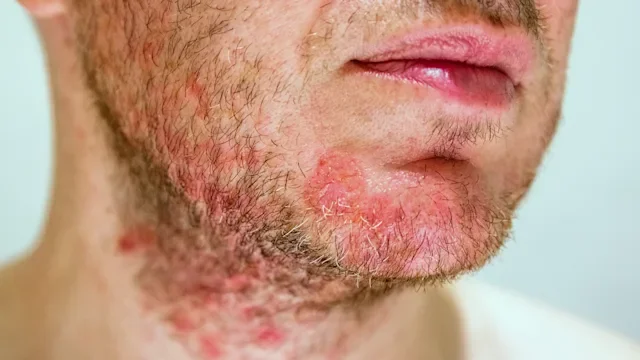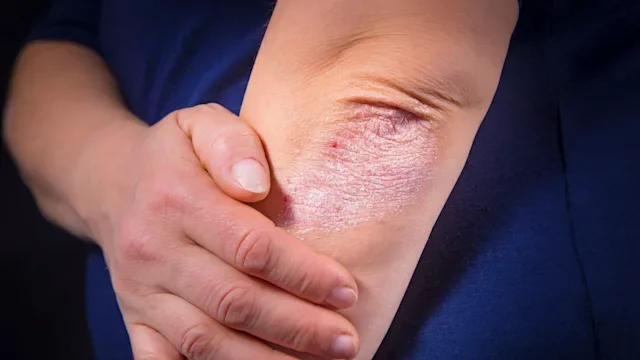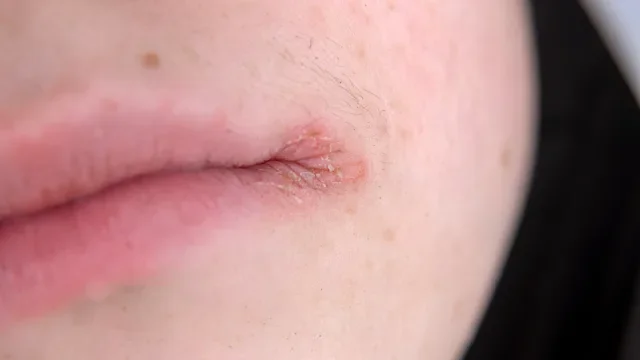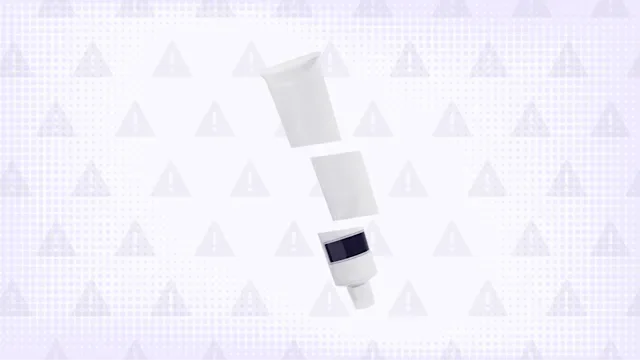Key takeaways:
Cibinqo (abrocitinib) and Rinvoq (upadacitinib) can treat moderate to severe atopic dermatitis (eczema) for people ages 12 years and older. They work for eczema by lowering inflammation signals between cells.
The typical dosages of Cibinqo and Rinvoq for treating eczema are similar. They’re both oral pills that you take once a day.
Cibinqo and Rinvoq are both effective options for moderate to severe eczema. But they should only be considered if other types of treatments aren’t working well enough.
There are ways to save on Cibinqo and Rinvoq. If you’re eligible, manufacturer savings cards can help make your prescription more affordable. Patient assistance programs are also available.
Atopic dermatitis, commonly referred to as eczema, causes itchy skin and long-lasting rashes. Experts believe this health condition is caused by excess inflammation (swelling) in the body. Two available eczema treatments are Cibinqo (abrocitinib) and Rinvoq (upadacitinib).
Cibinqo and Rinvoq both belong to a group of medications called Janus kinase (JAK) inhibitors. One of these two oral tablets may be prescribed for moderate to severe eczema when other treatments haven’t worked well enough. Cibinqo and Rinvoq are quite similar to each other. But they have a few differences to know about.
Below, we’ll review seven notable facts to keep in mind when comparing Cibinqo and Rinvoq for eczema.
Search and compare options
1. Cibinqo and Rinvoq have different FDA-approved uses
Cibinqo and Rinvoq are both FDA approved to treat moderate to severe eczema in adults and adolescents ages 12 and older. But that’s where the main similarities stop. Cibinqo has no other FDA-approved uses.
Rinvoq, on the other hand, has a number of other approved uses:
Moderate to severe rheumatoid arthritis in adults
Psoriatic arthritis in adults
Moderate to severe ulcerative colitis in adults
Moderate to severe Crohn’s disease in adults
Ankylosing spondylitis in adults
Non-radiographic axial spondyloarthritis in adults
Note: It’s recommended that adolescents weigh at least 88 lbs (40 kg) to take Rinvoq for eczema. Cibinqo doesn’t have a minimum weight requirement.
2. Cibinqo and Rinvoq work similarly to treat eczema
Cibinqo and Rinvoq treat eczema by blocking certain inflammation signals in the body. Fewer inflammation signals means fewer eczema symptoms.
As mentioned earlier, experts think eczema is caused by excess inflammation. JAKs are a group of enzymes (proteins) that help contribute to inflammation. They work hand-in-hand with a different group of proteins called cytokines.
Some immune cells make cytokines to provide inflammation signals to other cells. JAKs receive cytokines’ signals and tell the body to create swelling. In eczema, this extra inflammation causes itching and rashes.
Rinvoq and Cibinqo block JAKs from receiving cytokine signals. This helps reduce inflammation and relieve eczema symptoms.
3. Cibinqo and Rinvoq are both taken once a day for eczema
The usual dose of Rinvoq for eczema is one 15 mg tablet taken by mouth once a day. But some people may take up to 30 mg a day if their symptoms don’t improve with the lower dose. It’s recommended that people with severe kidney problems, and adults over age 65, only take 15 mg per day.
The recommended dose of Cibinqo is one 100 mg tablet by mouth once daily. If eczema symptoms don’t improve after 12 weeks (3 months), your healthcare provider may raise the dose to 200 mg once a day. People with kidney problems typically take a lower dose of Cibinqo (50 mg to 100 mg once daily).
Good to know: Rinvoq is an extended-release (ER) tablet. You may notice a pill-shaped object in your stool after taking Rinvoq. This is normal and typical with many ER tablets. It’s only the pill’s indigestible, outer layer — not the medication itself.
4. Cinqo and Rinvoq are both effective eczema treatments, but neither are considered first-choice options
Both Rinvoq and Cibinqo are effective in treating moderate to severe eczema. But neither are recommended as first-choice treatments. They’re usually only considered if you haven’t had success with topical (applied to the skin) and other systemic (body-wide) eczema treatments.
A review of multiple clinical trials suggested that the higher dose of Rinvoq (30 mg) may be more effective than the lower dose (15 mg) of Rinvoq and all doses of Cibinqo. But it was also more likely to cause side effects. The lower dose of Rinvoq seems to provide similar benefits to the higher dose (200 mg) of Cibinqo.
It’s important to note these two medications haven’t been directly compared to each other in clinical trials. Head-to-head comparison studies would be needed to confirm these findings.
5. Cibinqo and Rinvoq have similar common side effects
JAK inhibitors can weaken the immune system. This means you may have a higher risk for infections while taking them. In fact, infections are some of the most common side effects that people taking Cibinqo or Rinvoq experience.
Common side effects that Cibinqo and Rinvoq share include:
Upper respiratory tract infections, such as the common cold
Acne
Nausea
Headache
Flare-ups of infections caused by herpes simplex virus, such as cold sores
Higher blood creatine phosphokinase levels (a marker of potential muscle damage)
6. Cibinqo and Rinvoq have similar serious risks and warnings
Serious infections, such as tuberculosis, are possible while taking Cibinqo or Rinvoq. Before starting either medication, your healthcare provider should screen you for different infections. This is because JAK inhibitors can worsen or reactivate these infections. You’ll likely also be screened regularly for them while taking Cibinqo or Rinvoq.
In 2021, the FDA added a boxed warning (the strictest warning the FDA can give to a medication) to Cibinqo’s and Rinvoq’s labeling about several serious side effects. These side effects include a higher risk of:
Death
Certain cancers
Heart attacks and strokes
Blood clots
You should discuss these risks with your healthcare provider before starting Cibinqo or Rinvoq for eczema. Your provider will weigh the pros and cons of these medications before prescribing one for you.
7. Cibinqo and Rinvoq have different drug interactions
Both Cibinqo and Rinvoq are broken down in the liver by certain enzymes. These enzymes also break down other medications. This is why several medications interact with Cibinqo and Rinvoq. But there are differences when it comes to these interactions.
Some Rinvoq interactions include:
Clarithromycin
Diltiazem (Cardizem)
Grapefruit juice
Phenytoin (Dilantin)
Rifampin
St. John’s wort, an over-the-counter herbal supplement
Some Cibinqo interactions include:
Amiodarone (Pacerone)
Fluconazole (Diflucan)
Fluoxetine (Prozac)
Metronidazole (Flagyl)
Sulfamethoxazole / trimethoprim (Bactrim)
People taking Cibinqo should also avoid taking antiplatelet medications during the first 3 months after starting it. Low-dose aspirin (81 mg or less) is considered a safe antiplatelet to combine with Cibinqo. However, it can be dangerous to stop taking other antiplatelets to make way for Cibinqo. Make sure your healthcare provider knows if you take an antiplatelet, as Cibinqo may not be right for you. Rinvoq doesn’t have this interaction.
These aren’t the only interactions for Cibinqo and Rinvoq. Talk with your pharmacist and healthcare provider before starting any new medications or supplements. Providing them an updated medication list can help them spot interactions better. Some medications may still be OK to combine with Cibinqo or Rinvoq. But you may need to take a lower dose.
Vaccine interactions
You should avoid receiving live vaccines after starting Cibinqo or Rinvoq. Examples include FluMist (nasal spray flu vaccine) and the measles, mumps, and rubella (MMR) vaccine. People with weakened immune systems may be at higher risk for getting sick when receiving live vaccines. Live vaccines may also be less effective if received while taking a JAK inhibitor.
Good to know: Most vaccines you receive are inactivated (contain dead virus). This includes the tetanus, diphtheria, and pertussis (Tdap) vaccine and injectable flu vaccines. These are typically safe to receive while taking Cibinqo or Rivoq.
So how do you choose between Cibinqo and Rinvoq for eczema?
There are a few factors your healthcare provider may take into consideration when choosing between Cibinqo and Rinvoq for eczema:
Your body weight if you’re under 18. If you’re under 18 years old and weigh less than 88 lbs, your provider may avoid prescribing Rinvoq. Cibinqo may be a better option because it doesn’t have a minimum weight requirement.
Your other health conditions. If you also have autoimmune disorders, such as rheumatoid arthritis, Rinvoq may be a better option. Rinvoq may be able to treat multiple conditions at once in this case.
Your other medications. Since Cibinqo and Rinvoq have unique interactions, this can be an important factor when choosing between them.
Your insurance coverage. This is often the biggest deciding factor in many cases. It’s common for insurance plans to prefer one medication in a class over others. An insurance’s preferred medications typically have lower copays or coinsurance than non-preferred medications.
How to save on Cibinqo and Rinvoq
Cibinqo and Rinvoq are only available as brand-name medications. But GoodRx can help you navigate ways to save on your prescription.
Save with a copay savings card. If you have commercial insurance and meet eligibility requirements, Cibinqo is as little as $0 per month if you use the manufacturer’s savings card. Rinvoq is as little as $5 per month if you use the manufacturer’s savings card.
Save with patient assistance programs. If you’re uninsured or underinsured, you may be eligible for Cibinqo or Rinvoq patient assistance programs, which offer the medication at no charge.
The bottom line
Cibinqo (abrocitinib) and Rinvoq (upadacitinib) are Janus kinase (JAK) inhibitors. They’re FDA approved to treat moderate to severe atopic dermatitis (eczema) in people ages 12 years and older. They’re both effective for this condition but aren’t considered a first-choice option. Cibinqo or Rinvoq may be considered for eczema if your symptoms haven’t improved with other medications.
Cibinqo and Rinvoq can raise the risk for infections since they weaken the immune system. And they each have unique drug interactions to keep in mind. Before starting either medication, discuss the risks and benefits of Cibinqo and Rinvoq with your healthcare provider.

Why trust our experts?


References
AbbVie Inc. (2023). Rinvoq - upadacitinib tablet, extended release [package insert].
Adas, M. A., et al. (2021). The infection risks of JAK inhibition. Expert Review of Clinical Immunology.
Ballard, A. (2022). JAK inhibitors are coming and they are the biggest eczema development in years. National Eczema Association.
Bao, L., et al. (2013). The involvement of the JAK-STAT signaling pathway in chronic inflammatory skin disease atopic dermatitis. JAK-STAT.
Centers for Disease COntrol and Prevention. (2023). Contraindications and precautions. U.S. Department of Health and Human Services.
Davis, D. M. R., et al. (2023). Guidelines of care for the management of atopic dermatitis in adults with phototherapy and systemic therapies. Journal of the American Academy of Dermatology.
Lynch, T., et al. (2007). The effect of cytochrome P450 metabolism on drug response, interactions, and adverse effects. American Family Physician.
MedlinePlus. (2023). Creatine kinase.
Pfizer Laboratories Division, Pfizer Inc. (2023). Cibinqo - abrocitinib tablet, film coated [package insert].
Szalus, K., et al. (2020). JAK-STAT inhibitors in atopic dermatitis from pathogenesis to clinical trials results. Microorganisms.
U.S. Food and Drug Administration. (2021). FDA requires warnings about increased risk of serious heart-related events, cancer, blood clots, and death for JAK inhibitors that treat certain chronic inflammatory conditions.
Wan, H., et al. (2022). Comparative efficacy and safety of abrocitinib, baricitinib, and upadacitinib for moderate‐to‐severe atopic dermatitis: A network meta‐analysis. Dermatologic Therapy.














